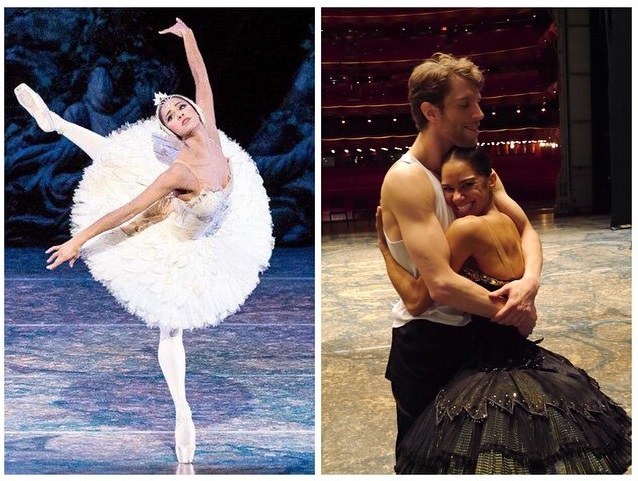Do you dumplings follow sports? I typically don’t–but right now is such an interesting time for women athletes, that it’s hard not to pay some attention. There was the U.S. win at the Women’s World Cup, and then the Wimbledon that’s going on right now, where Serena Williams beat her sister Venus to move on to quarterfinals.
The truth is, I think women athletes are some of the best role models we have, despite the fact that they’re less in the spotlight. Most high-profile women in our culture tend to be princesses, models, actresses, or (lastly) executives. I’m not saying that any one of those things are easy or don’t require talent and hard work; but there is something so unique about athletes who, at the end of the day, are not judged by image-making or luck, so much as what they can do inside the game. Also, they embody not just the ideals that women are “supposed to be good at” such as compassion and elegance, but ones like competitiveness, drive, physical fitness, grit, thick skin, super confidence, and sportsmanship–a really cool type of integrity you can exude when you play fair in your game and in life. Who doesn’t want that?
Without further ado, here are some lessons from my favorite women athletes.
1. Take responsibility for your confidence.
“Just believe in yourself. Even if you don’t, pretend that you and at some point, you will.” – Venus Williams
“Some people say I have attitude–maybe I do…but I think you have to. You have to believe in yourself when no one else does–that makes you a winner right there.” – Venus Williams
There is a funny saying on learning: “I can teach you, but I can’t understand it for you.” And confidence works the same way. Other people are not responsible for encouraging and supporting you, so don’t wait for compliments to start pouring in, and start with a basis of inner confidence. You know yourself best: you know what you’re capable of, what you want, and how far you’re willing to go to get it.
2. You do thousands of hours of work so that when you’re ready, you attack.
“You just have to show up for practice, be professional, work your ass off…Be ready.” – Kelley O’ Hara
O’Hara is a breakout star from this Women’s World Cup, scoring in the semifinal match against Germany. It was only her second time playing for the women’s national team, and her first goal at the World Cup. So imagine going into the tournament, not even knowing whether you’re going to even play or not–but you have to be no less dedicated. In life we’re often so anxious about the possibility of not getting that opportunity to “go on the field,” of not receiving an opportunity. But all athletes work as though they’ll go on at any minute. You’re not a bench athlete if you don’t work like a bench athlete. So work like a champion.
3. Own your ambitions.
“My goal is to become the first African American principal dancer with the ABT.” – Misty Copeland
This week, ABT announced the promotion of several of its Soloists to Principal Dancers, though only one of them made headlines all over media: that of 32-year-old Misty Copeland, the most famous ballerina of her generation (see: Under Armour commerical, memoir called Life in Motion: an Unlikely Ballerina, TIME magazine cover, etc).
She had been a Soloist since 2007, and many younger dancers had been promoted to Principal before. (Paloma Herrera, who just retired from the same company, was made a Principal at age 20). So it’s really astonishing that Misty had been so vocal about her wish to be promoted to Principal these past several years. Think about telling the people both in and outside your company that your goal is to become promoted to XYZ, or that your goal is to publish a book, to create your own successful brand, or what have you. Pretty nerve-racking, right?
We often don’t sell our ambitions because we’re afraid of that not coming to pass, getting embarrassed, or seeming ambitious. That’s certainly a risk–I don’t think Misty’s outspokenness would have been taken any more gently by her bosses or her colleagues in that highly competitive group. But she made a decision to go all-in and not beat around the bushes about what she wants–and the public support she generated certainly helped her get what she wants.
4. You don’t let failures and setbacks distract you from what you want.
Another thing about Misty is that she’s famous for having started dancing at age 13, and becoming a professional by entering corps de ballet at 18. But not many people know that same year, she had fractured a part of her spine, and had to have her puberty induced in order to strengthen her bones (she’d not had her period at that point). Having a sudden, new physique was a setback for her dance career, as were several injuries and surgeries that put her out of performing for extended periods of time, up to a year.
Almost all athletes face injuries, which are perhaps most difficult because you feel like you can’t do anything. But something common in all great athletes is that they take this lull-period very seriously and prepare in every other way they can to get stronger. We all get these “injury” periods whether it’s time between jobs or relationships; but you can’t let the frustration get the better of you and give up. You use that time to improve your game. And you do it again and again.
Do you have a favorite athlete? And how does s/he inspire you?
Related: 4 Ways to Stay Motivated Through Physical Pain
How to Stay Motivated When You Really Don’t Feel Like it
On Physical Injuries and Recovery
__
Photo: Laura via Flickr; Misty Copeland via Instagram






